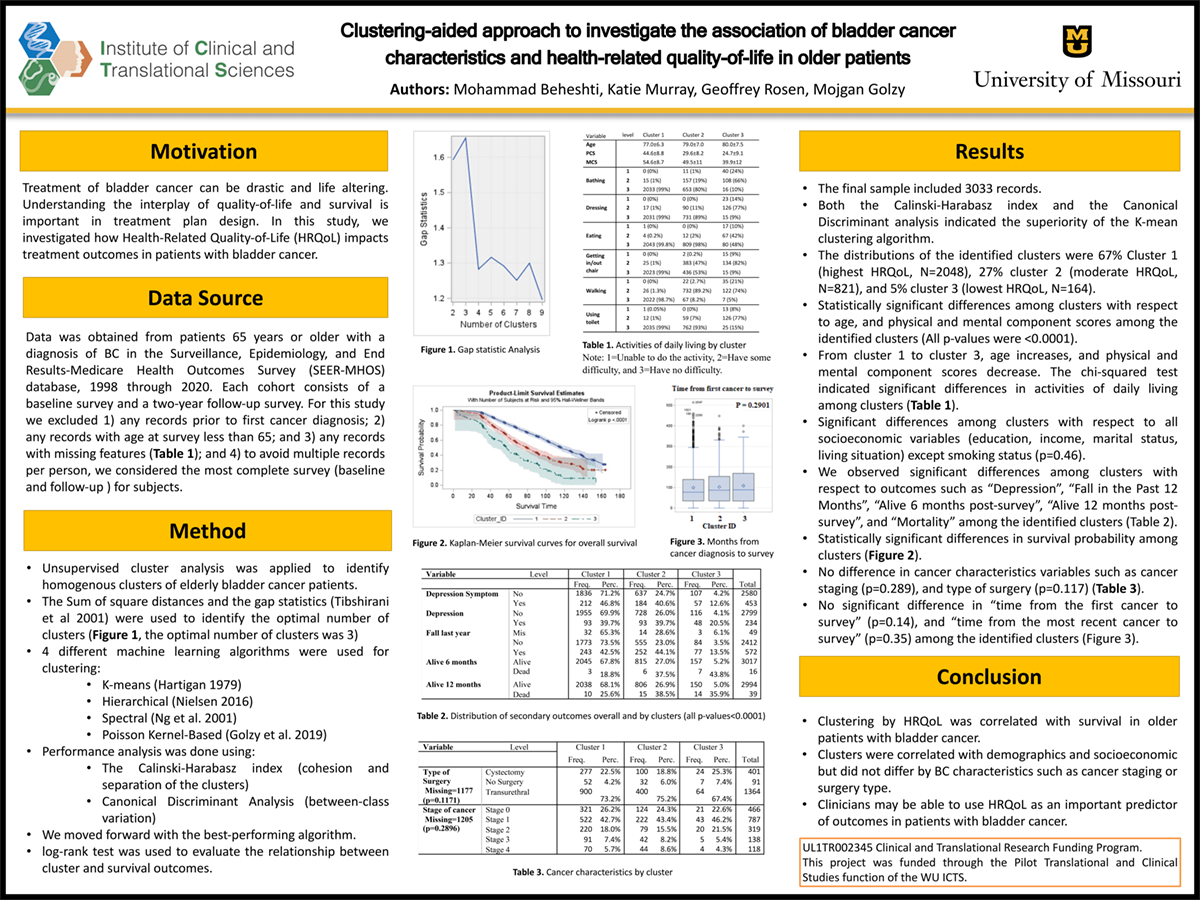
Introduction: Understanding factors affecting survival outcomes and quality of life is important in advising patients on treatment options for bladder cancer. We investigated whether the bladder cancer characteristics have any effect on the Health-Related Quality-of-Life (HRQoL) measures in older bladder cancer patients. This analysis improved the understanding and expectation management of these patients when making decisions on how to proceed with treatments.
Methods: Data were obtained from patients with a diagnosis of BC in the SEER-MHOS database (age>=65), from 1998 through 2020. We applied unsupervised machine learning algorithms to empirically identify the homogenous clusters of elderly bladder cancer patients with similar HRQoL (measured by PCS, MCS, and ADLs). Log-rank test was used to assess the association of the clusters with survival outcomes. We investigated whether bladder cancer characteristics such as staging, surgical treatment, and time of diagnosis had any association with the identified clusters.
Results: The chi-squared test indicated significant differences among clusters with respect to demographics, and socioeconomic variables (except smoking status p=0.26). We observed significant differences in outcomes such as Depression and Fall. The log-rank test from Kaplan Meier shows significant differences in survival probability among clusters. We did not find any significant difference in cancer characteristics variables such as cancer staging (P=0.12) and surgical type (P=0.07) and time from first cancer to survey (P=0.50) among the different clusters.
Impact: The results indicate independency of the Health-Related Quality of Life (HRQoL) measures such as physical and mental component scores and activities of daily living of the bladder cancer patient and bladder cancer characteristics such as stages of cancer, type of surgery, and time of first cancer. This helps in better understanding the association between cancer and subsequent treatments and the emotional and physical functioning of patients and can serve as a solid foundation for urologists to better understand and counsel patients on how their functional status will impact their cancer outcomes.
Organization: University of Missouri – Columbia
Beheshti M, Golzy M, Murray KS, Rosen G